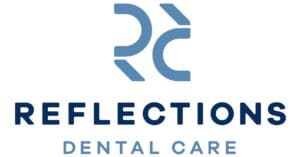When it comes to restoring missing teeth, two popular options stand out: dental implants and dentures. Both options have their unique advantages and considerations, making it crucial for individuals to make informed decisions based on their specific needs and preferences. This blog aims to delve into the characteristics, benefits, and drawbacks of both dental implants and dentures, helping you determine which option is the best fit for you.
Dental Implants:
Dental implants are considered a revolutionary advancement in modern dentistry. They are designed to replace the root of a missing tooth, providing a stable foundation for a natural-looking prosthetic tooth or crown. Typically, titanium is used for the implant itself. Through a process called osseointegration, this biocompatible material joins with the jawbone.
Advantages of Dental Implants:
1. Durability and Longevity:
With the right maintenance, dental implants are extremely durable and can last a lifetime. Unlike dentures, which may require periodic adjustments or replacements, implants become a permanent part of your oral structure.
2. Natural Look and Feel:
The look and feel of implants are quite similar to that of natural teeth. Since they fuse with the jawbone, they provide a stable and comfortable chewing experience, making it easy to eat and speak without worry.
3. Preserving Jawbone Health:
By stimulating the jawbone, implants help prevent bone loss, maintaining the overall integrity of your facial structure.
4. Improved Oral Health:
Unlike traditional bridges, implants do not require the alteration of neighboring healthy teeth. As a result of maintaining healthy teeth, long-term oral health is improved.
Considerations for Dental Implants:
1. Cost:
Full mouth dental implant costs are higher compared to dentures due to surgical requirements and premium materials. Despite the initial investment, their durability and advantages often outweigh the expense, making them a valuable long-term solution for dental health.
2. Surgery and Healing Time:
The implantation process requires oral surgery and a period of healing before the prosthetic tooth can be attached. Some individuals may need additional treatments if their bone density is insufficient for immediate implantation.
3. Candidacy:
Dental implants are not appropriate for everyone; sufficient bone density and overall good oral health are essential prerequisites. In cases of severe bone loss, bone grafting may be required to proceed with implant placement.
Dentures:
For many years, dentures have been a common choice for tooth replacement. They come in two primary types: complete dentures, which replace all teeth in the upper or lower jaw, and partial dentures, which fill gaps left by a few missing teeth.
Advantages of Dentures:
1. Affordability:
Dentures are generally more budget-friendly compared to dental implants, making them accessible to a wider range of individuals.
2. Non-Invasive Procedure:
Unlike dental implants, getting dentures does not involve surgery. The process usually involves taking impressions of your mouth and fitting the dentures accordingly.
3. Suitable for Various Cases:
Dentures can be used to replace multiple missing teeth, whether they are adjacent or spread across the jaw.
Considerations for Dentures:
1. Stability and Comfort:
Dentures can sometimes feel less stable in the mouth, affecting speech and eating. Dental adhesives can help, but they may not provide the same level of confidence as implants.
2. Bone Resorption:
Unlike dental implants, which stimulate the jawbone, dentures do not prevent bone resorption. Over time, this may lead to changes in facial appearance and the need for denture readjustments.
3. Maintenance and Replacement:
Dentures require regular maintenance and may need replacement every few years due to wear and tear or changes in the jawbone structure.
Conclusion:
Several aspects, including your oral health, financial situation, and personal preferences, will influence your decision between dental implants and dentures. Dental implants offer unmatched durability, aesthetics, and preservation of oral health, but they require a higher initial investment and involve a surgical procedure. On the other hand, dentures are more affordable and non-invasive, but they may not provide the same level of stability and jawbone preservation.
To make the best decision, consult with your dentist in OKC, who can assess your specific situation and guide you toward the most suitable option. Remember, the goal is to restore your smile and oral function, enabling you to enjoy life with confidence and comfort.
Related Blogs:
Dental Implants – As Close to Permanent As You Can Get
Difference Between Veneers, Crowns, and Implants
What are the Benefits of Implant-Supported Dentures?
8 Signs You Need Dental Implants: Are You a Candidate?
The Difference Between Veneers, Dentures, & Implants

